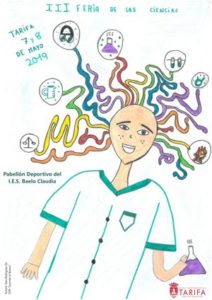Contenidos
General saenz de santamaria y soraya
Is it important to have ambition?
In 2000, as a state lawyer, she began her political career as legal advisor to the then minister Mariano Rajoy, under the direct orders of his cabinet director Francisco Villar García-Moreno.[21] She is a specialist in territorial policy, which is why she has held the position of executive secretary of the Autonomous and Local Policy of the Popular Party (Partido Popular).
She is a specialist in territorial policy, which is why she has held the position of executive secretary of Autonomous and Local Policy of the Popular Party. In addition, she is a member of the National Executive Committee of the Popular Party.[22]
On March 31, 2008, the leader of the PP, Mariano Rajoy, announced that Soraya Sáenz de Santamaría would occupy the position of spokesperson of the Popular Party in the Congress of Deputies in place of Eduardo Zaplana, who held the same position in the previous legislature.[23]
After the Popular Party won the November 2011 general elections, PP leader Mariano Rajoy appointed Soraya Sáenz de Santamaría to lead the handover team between the outgoing PSOE government and the incoming PP government.[24] On December 21, 2011, she was appointed to the post of spokesperson of the Popular Party in the Congress of Deputies, replacing Eduardo Zaplana, who held the same post in the previous legislature.
On December 21, 2011, she was appointed Vice-President, Minister of the Presidency – with the powers over the intelligence services, which were previously included in Defense – and spokesperson of the executive presided over by Mariano Rajoy.[25][26] In addition, on June 3, 2013, she assumed the presidency of the Delegate Commission for Economic Affairs, in the absence of the President of the Government.[27]
Sáenz de santamaría defiende la obligación legal del gobierno
María Soraya Sáenz de Santamaría Antón (nacida el 10 de junio de 1971) es una ex política española del Partido Popular que fue vicepresidenta del Gobierno de España y ministra de la Presidencia entre 2011 y 2018. Fue diputada en el Congreso de los Diputados en representación de Madrid desde 2004 hasta 2018.
Cursó estudios universitarios de Derecho y se licenció en Derecho en la Universidad de Valladolid en 1994, logrando el número 1 de su promoción, premiada con matrícula de honor, con un expediente académico repleto de matrículas de honor y obtuvo el Premio Extraordinario de Licenciatura. Tras superar unas oposiciones, ingresó en el Cuerpo de Abogados del Estado (cuerpo de élite de funcionarios).
En el año 2000, el antiguo jefe de gabinete de Mariano Rajoy la contrató para trabajar como asesora del gabinete de la vicepresidenta primera del Gobierno en el Ministerio de la Presidencia y en el Ministerio del Interior[4].
Tras los resultados de las elecciones generales de 2011, que dieron la mayoría absoluta al PP en el Congreso de los Diputados, Mariano Rajoy fue investido presidente del Gobierno y formó un nuevo gabinete. Sáenz de Santamaría se convirtió en vicepresidenta del Gobierno y portavoz del mismo el 22 de diciembre de 2011[7].
Soraya and morenés visit the troops deployed in
Soraya Sáenz de Santamaría assumes as first vice-president, minister of the Presidency and spokesperson a position of maximum confidence and faces the complicated task of coordinating the Executive in a legislature of difficult fight against the crisis and unemployment.
She is part of Rajoy’s circle of trust. And to say that about the hermetic new President of the Government is a lot. Hard-working, intelligent and well valued by her political adversaries, she has been present in Rajoy’s first moves. Her hand is felt throughout the cabinet and in the appointment of his successor in Congress, Alfonso Alonso.
And he knocked on the door of politics in 2000. He sent his resume to the First Vice-Presidency headed by Mariano Rajoy. A friend informed him that they were looking for a state lawyer. Rajoy’s then chief of staff, the late Francisco Villar, was greatly surprised.
Soraya sáenz de santamaría asks for an exercise of
The excomisario José Villarejo, who has declared this Friday as an imputed in the National Court for the ‘Kitchen operation’, has ratified his version before the judge Manuel García Castellón. At his exit, he told the media that the former Prime Minister Mariano Rajoy had a “personal interest” in the alleged parapolice operation and has assured that he kept him informed of it through mobile messages.
He has also justified that he secretly entered the PP headquarters through the garage to meet “no one knows” how many times with the former secretary general of the party María Dolores de Cospedal because “intelligence work has these things”.
TVE has had access to new audios of the ‘Kitchen case’. The retired commissioner José Manuel Villarejo records a conversation with the one who was responsible for the Economic Crimes Unit of the police, José Luis Olivera. In it, they claim that Mariano Rajoy believed that there were microphones in his office in Congress and that he commissioned Villarejo to find out. They also say that it was the former vice president Soraya Saenz de Santamaria who introduced the devices to make a sweep.





